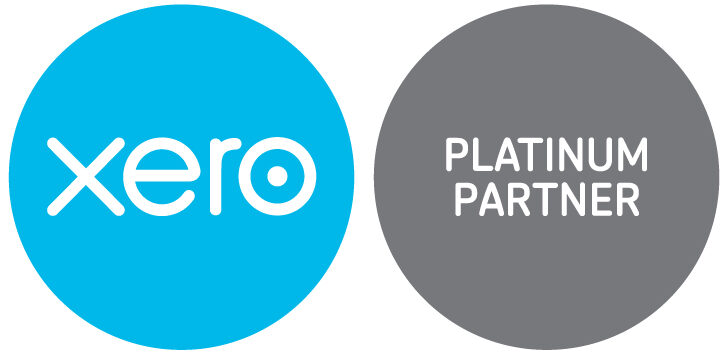The Chancellor’s announcement on Friday evening of a far reaching package of measures allows businesses in this country to stand by their employees at a time of national emergency. Such direct action by the government to keep people in employment is a really good start. It should make a difference to how people feel and keep them working and spending. The real battle now is for public confidence: if we can sustain that, the economics will follow.
Much of the detail is still being worked up and we expect more information to follow (for example on the self-employed). In addition to what has been announced previously and on which we have commented and informed you about, we can now update you as follows:-
Support for businesses through the Coronavirus Job Retention Scheme
Under the Coronavirus Job Retention Scheme, all UK employers will be able to access support to continue paying part of their employees’ salaries for those employees that would otherwise have been laid off during this crisis. All UK businesses are eligible.
The sole purpose is to hopefully stop any organisation from having to lay staff off and/or make redundancies. Before Friday’s announcement, if you had no work for an employee, you would have laid off with them only receiving £29 per day max for 5 days and all other leave being unpaid and/or making them redundant. The Government knew this would have a massive strain on the economy and given the scale of businesses we are seeing having to close down as a result of this virus’s impact, families and companies just would not survive and most companies would not be able to meet redundancy costs with no income coming in etc. In addition we know this is only a short term situation and therefore many businesses would still need to be in a position to quickly ramp up again as we come out of the other side of this. What the Government are now asking businesses to do is not to lay off staff or make redundancies at this time, but to continue to support them by continuing to pay them even if you have no work for them. If you cannot, either as a whole or in part, remain open because of the impact of Covid-19 then in the case of Furloughed Workers the Government will cover up to 80% of the gross employee costs for that person, capped at £2,500.00 per month.
We are therefore now in a slightly different situation. Instead of going down the legalities of lay off or redundancy, whether contractual or not, if you cannot gainfully employ someone at this time and they would therefore have to be laid off in any other circumstances, then what we have to do is designate them as Furloughed Workers which simply means they are in a temporary non-pay status because of lack of work or funds. We will have to notify employees of this change, and you then submit this information to HMRC through a new online portal that they say will be up and running within a few weeks. If any employees have already been laid off, then we can amend their status and HMRC will back date payments to the 1st March 2020, with the Government committing to cover these costs for at least three months and longer if necessary. It is important to note that this is only if you have no work for that person as a result of this situation. They cannot perform any work for you during the period they are furloughed but they remain an employee of the business with normal employment rights continuing to accrue, i.e. continuous service, holidays etc. If, for example, you can still employ someone, whether that be in the office/factory etc or in a new temporary working from home position, then this does not apply and the normal wage process will remain in place.
The furlough arrangements can apply to the company as a whole or individual employees, where you do not have legitimate work for them or cannot, as a result of a decline in income and/or work, support some or all of your employees.
Should an employee be self-isolating due to either having Covid-19 symptoms, or because they have potentially come into contact with someone with Covid-19 or because they are on the high risk list, then they will continue to receive SSP in line with the guidelines given. This means no waiting days and as a business you can claim up to 14 days back from the HMRC, albeit we are waiting for that functionality to go live.
Employees would remain employed while furloughed. Employers could choose to fund the difference between the government payment and the normal salary, subject to contractual obligations. If employees’ salaries are reduced as a result of these changes, they may be eligible for support through the welfare system, including Universal Credit.
Support for business through the Coronavirus Business Interruption Loan Scheme
Some further clarification has been received. If your business needs short term cash flow support, you may be eligible for a Coronavirus Business Interruption Loan.
This is designed to give loans to SME’s up to a limit of £5m, interest free for 12 months with a government guarantee of up to 80% of the value of the loan. This is potentially the biggest support for business ever and could secure the immediate future of many clients, giving breathing space and allowing them to weather the storm. It becomes available from Monday 23rd, however there are the requirements of a formal loan application here and the banks may have resource issues.
The application has to fulfil the criteria set out by the British Business Bank (BBB). Those criteria are set out on the BBB website. Applicants do not approach BBB but their own bank, as long as it is listed on the BBB website. The conditions for eligibility are straight forward (turnover less than £41m) but the one that is key says that applicants will “be unable to meet a lender’s normal lending requirements for a fully commercial loan or other facility, but would be considered viable over the longer term”. This suggests that if you were a profitable business pre-Covid 19 but may not be viable due to the consequences of the virus but you can demonstrate that you will return to viability, you would qualify for the scheme.
It appears that an approach to your own bank, under the provisions of this scheme, should be undertaken immediately and you should enquire of the bank, what the level of funding is and what information will be required to access it.
VAT payments have been deferred
No VAT will be required to be paid to HMRC between now and 20th June. Any arrears will be arranged for payment between 20th June and the end of the 20/21 tax year, we assume meaning no later than 5th April 2021. This effectively covers the VAT quarters ended February to April. In other words, it is designed to give every business one quarter’s relief. This may be insufficient and it may well be extended for another 3 months. In any case, further deferments can be negotiated on an individual basis after that time, using the normal time to pay facility.
However, thought should be given to the accumulation of VAT debt. If the crisis passes and the arrears are seen as collectable, the attitude of HMRC may change dramatically and become far less amenable, just as it did when it perceived that the consequences of the 2008/09 crash were over.
HMRC will not collect income tax bills due to be paid on 31st July of this year. These will be deferred until 31st January 2021
Again, this is a cash flow saving which is a double edged sword. This is a personal tax bill and is inherently different to a corporate one. Clients should try and put this money to one side if at all possible. We await clarification of the position re interest and penalties, if the debt is not cleared in full by 31 January 2021 but at least there is some short term relief.
As ever if you have any questions or regard any further assistance in connection with any of the information above please make contact with your client relationship partner.







 Production
Production